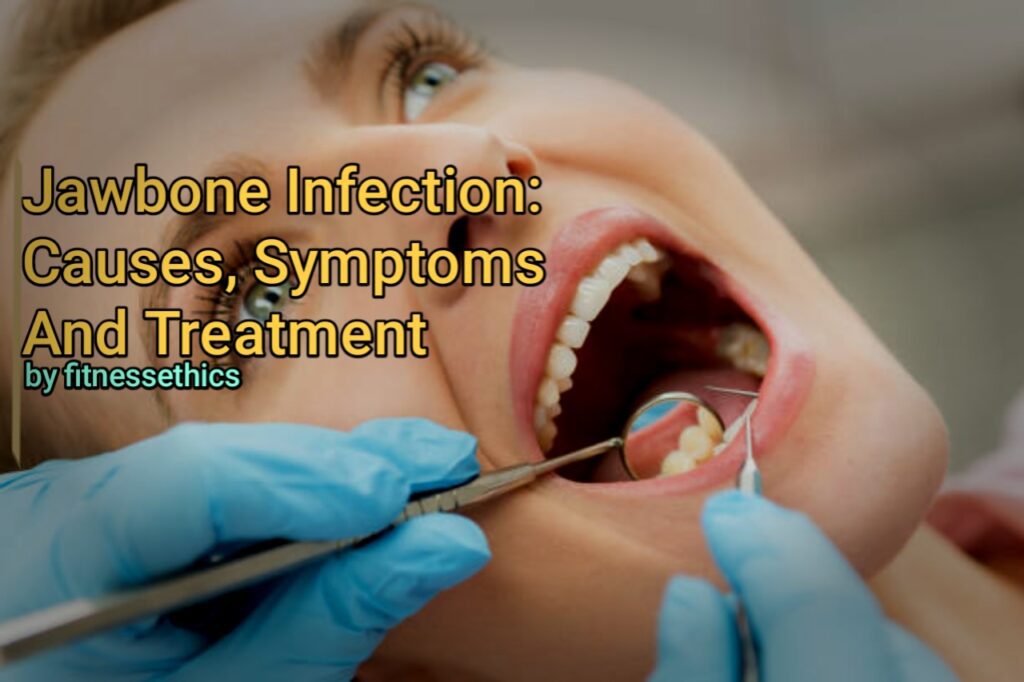Jawbone infections occur as a result of dental cavities remaining untreated. Jawbone infections or dental abscesses are pockets of pus in a tooth caused by an infection. The infection can result from an untreated cavity, injury or old dental work.
Causes Of Jawbone Infection

An untreated cavity causes jawbone infection, and cavities are tooth decay. Cavities are permanent damage to your tooth crown that develops tiny holes or openings. Cavities can be caused by multiple factors, but the most common causes of cavities include bacteria in your mouth, frequent snacking, sipping sugary drinks, and not cleaning your teeth well. Since untreated cavities cause jawbone infection, it will be better to prevent cavities or tooth decay from happening than to let it get to the jawbone infection stage.
How Can You Prevent Tooth Decay?
Well, you have to do as your dentist advises and eat more healthy foods, including foods with less sugar content and fewer junk foods. Here are other ways in which you can prevent tooth decay.
Brush with fluoride toothpaste after eating or drinking
You should brush at least once twice daily. It’s highly recommended to do this as it helps prevent infections like cavities. You should also brush after you eat foods that stick to the surface of your teeth. Use recommended toothpaste that contains fluoride.
Rinse your mouth
Ensure that you rinse your mouth properly after brushing or eating. You should rinse the remaining food particles away so they don’t assimilate bacteria and cause cavities.
Visit your dentist regularly
Visit your dentist for check-ups, especially when you feel pain or discomfort in your mouth.
Drink some tap water
You should drink water more often, especially after you’ve eaten, in the morning and at night. Drinking water has other benefits apart from digesting food particles. Water helps break down food so that your body can take in (absorb) the nutrients. Water also makes stool softer, which helps prevent constipation.
Avoid frequent snacking and sipping
You should limit your intake of junk foods and eat tooth-healthy foods more often.
Eat tooth-healthy foods
Eat soft foods rather than hard foods that can stress your teeth. Eat more vegetables and fruits; take in more soft meat rather than half-cooked and grilled meat.
Avoiding alcohol and tobacco
When enamel becomes thin, the natural yellowish dentin shows through. Alcoholism, combined with smoking, can eventually cause periodontal disease, leading to cavities, decay, and tooth loss. Smokers are four times more likely to have gum problems than non-smokers.
Symptoms Of Jawbone Infection
Apparently, there might be no signs of jawbone infection, but untreated cavities can cause toothache, infection and tooth loss, redness or swelling, and drainage of pus from the area. You should seek immediate dental attention after you’ve observed any of these symptoms. Your dentist will try to drain the infection and will probably prescribe antibiotics. In severe cases, the tooth may need to be pulled or surgery performed to stop the infection from spreading further into the bones. Basically, untreated cavities progress into jawbone infections. There might not actually be an obvious sign that the infection is coming. This is why it’s highly advisable to visit the dentist at least once every 12–24 months.
Treatment of Jawbone Infection

- Improving your dental hygiene and procedures
- Dental restoration, which may include replacing a decayed tooth
- Treatments include fluoride, fillings, and crowns. Fillings are used to treat a small hole, or cavity, in a tooth. Dentists remove decayed tooth tissue and fill them with material. Learn more. Severe cases may need a root canal or removal.
[starbox]



